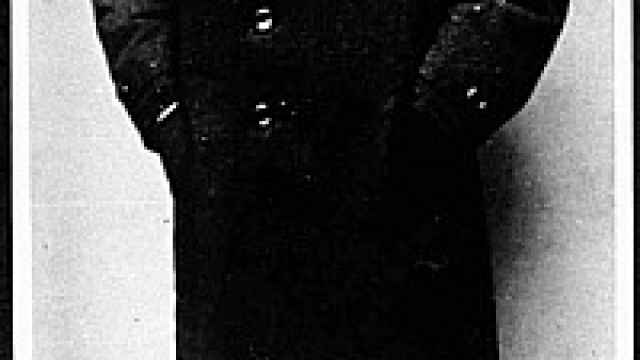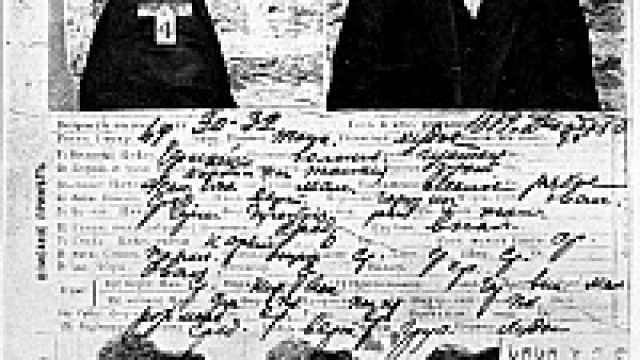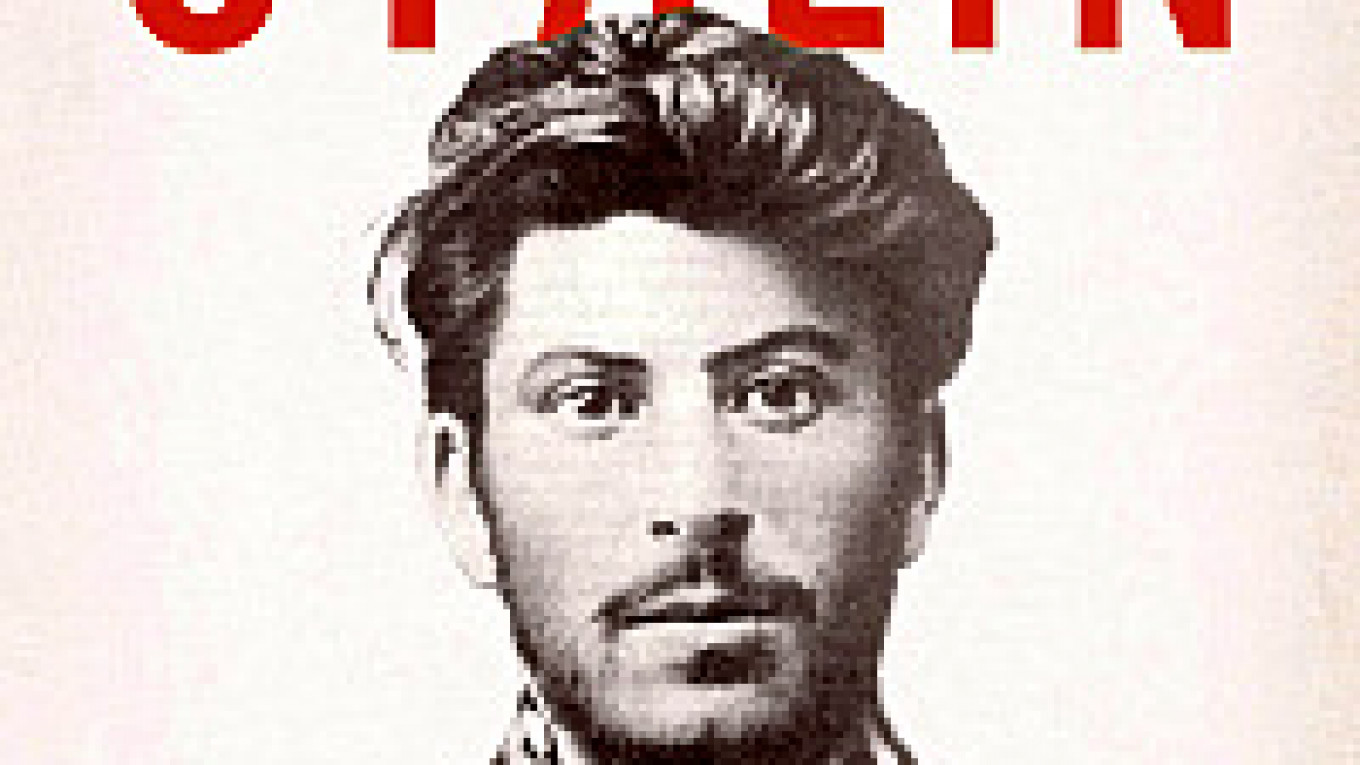Montefiore was a journalist and novelist before writing his first major historical work, "Prince of Princes: The Life of Potemkin." In writing it and his first Stalin biography, he made exhaustive use of archival and other materials and employed a lively, colorful style. His new book takes the same approach. Montefiore tells us that for this book he did research in 23 cities and nine countries. He is generous in acknowledging the work of previous scholars, indicates that he interviewed numerous people and states that the "bulk of the new material in this work comes from the Caucasus," where Stalin was born and spent most of his early years.
Starting with a prologue entitled "The Bank Robbery," which dramatically recounts an infamous 1907 Tiflis crime directed by Stalin, the book is full of vivid details and new revelations and analysis. Stalin was probably responsible, according to Montefiore, for numerous other robberies on trains, stagecoaches and ships, accumulating today's equivalent of millions of dollars for the Bolshevik cause. Montefiore quotes colorfully from a wide range of primary sources when describing the places and people Stalin encountered in the Caucasus, in exile or during stays in other cities inside the Russian Empire and abroad. "Baku was a city of 'debauchery, despotism and extravagance,'" and in the city's Bailov prison Stalin "was 'always seen in the company of cutthroats, blackmailers, robbers and the gunslingers -- the Mauserists.'" Chapter titles such as "Bolshevik Temptress" and "1914: Artic Sex Comedy," dealing with the 34-year-old Stalin's commencement of an affair with a 13-year-old girl, also signal the author's intention to tell a lively story. A chapter called "Two Lost Fiancees and a Pregnant Peasant" tells us of Stalin consoling himself "with another bout of skirt chasing that led to a forgotten semi-official marriage, and an illegitimate son." In a chapter on "The Central Committee and 'Glamourpuss' the Schoolgirl" we are entertained by a footnote about the future dour Soviet foreign minister Vyacheslav Molotov, here exiled in the northern town of Solvychegodsk, earning "one rouble a day by playing mandolin for rich merchants and their molls in the local restaurant and in the new cinema there." In a chapter on Stalin in Vienna in 1913, we read that he liked to walk in the same park as did another future dictator then in the city -- Adolf Hitler.
 David King Collection, London Stalin was probably responsible for numerous heists in banks and trains across the Caucasus. Police mug shots from 1910 and 1912. | |
More flamboyant and less cautious in his prose than most academic historians, Montefiore frequently depicts Stalin in the Caucasus as a "terrorist" and "gangster," or "expert in gangsterism," and as "an arsonist, killer, bank robber ... [and] seducer." The author is fond of using such vernacular terms as "hit men" and "female gunslingers." He refers to future show-trial prosecutor Andrei Vyshinsky as Stalin's "sidekick" who "organized terrorist gangs and [had] become a hit man." He tells us that "Stalin was unusual -- as adept at debating, writing and organizing as he was at arranging hits and heists," and that he was the "godfather of bank robberies in the Caucasus."
Montefiore likes to use critical adjectives. He tells of Lenin's "fanatical dedication to Marxist revolution" and asserts that the first Bolshevik leader "existed in an obsessional frenzy of political vibration, driven by an intense rage and a compulsion to dominate allies." He depicts Trotsky as "shamelessly vain" and "overweeningly arrogant," and the writer Maxim Gorky as later becoming a "shameful apologist" for Stalin. In one sentence alone he writes of "the utopian fanaticism of [Soviet Russia's] quasi-religious ideology, the merciless Bolshevik machismo, the slaughterous spirit of the Great War, and Lenin's homicidal vision."
Psychoanalytic terms also make their appearance. The author writes of the "nymphomaniac mother" of Stalin's wife Nadezhda, points to Stalin's "burning inferiority complex" and observes that "the gangster glamour [of Stalin and his "gangsters"] concealed psychotic Mafia-style brutality." More readily than many historians, Montefiore inserts the word "always," as in "Lenin and Krupskaya ... were always drawn to the glamour (and utility) of brutal cutthroats"; "Lenin was always eager to start the bloodletting"; and Stalin was "always the lazy egotist" -- although we later read that "he was a hard worker," and overall the book suggests that the "always ... lazy" Stalin was quite the opposite.
Without minimizing Stalin's bloody deeds, it is appropriate to ask whether the constant reiteration of words such as "gangster," "criminal," "hitman," "gunslingers," "godfather" and "Mafia-style" tends to blur the differences between revolutionaries in Tsarist Russia and organized crime in a society like that of the United States, or even post-Soviet Russia. Montefiore does acknowledge some of Stalin's better traits: He was an intelligent young man who sometimes wrote poetry (samples are provided) and loved to read and garden -- he was "always green-fingered." Nikolai Gogol, Alexander Pushkin, Anton Chekhov and Gorky were among his favorite authors, and he recited poems by Nikolai Nekrasov from memory. He also liked some of Leo Tolstoy's and Fyodor Dostoevsky's fiction, and lectured one of his young girlfriends on William Shakespeare and paintings at the Louvre. "Poetry and music," he once told a friend, "elevate the spirit!" Another source states that Stalin "could be very jolly too. He loved to sing and dance." The author refutes some of the most slanderous charges against Stalin, such as that he once acted as a tsarist police agent, and at the end of the book we read of Stalin's generosity to old friends.
 David King Collection, London A police mug shot from 1910. | |
Walter G. Moss teaches history at Eastern Michigan University and is the author of "A History of Russia" and "Russia in the Age of Alexander II,
Tolstoy and Dostoevsky."
A Message from The Moscow Times:
Dear readers,
We are facing unprecedented challenges. Russia's Prosecutor General's Office has designated The Moscow Times as an "undesirable" organization, criminalizing our work and putting our staff at risk of prosecution. This follows our earlier unjust labeling as a "foreign agent."
These actions are direct attempts to silence independent journalism in Russia. The authorities claim our work "discredits the decisions of the Russian leadership." We see things differently: we strive to provide accurate, unbiased reporting on Russia.
We, the journalists of The Moscow Times, refuse to be silenced. But to continue our work, we need your help.
Your support, no matter how small, makes a world of difference. If you can, please support us monthly starting from just $2. It's quick to set up, and every contribution makes a significant impact.
By supporting The Moscow Times, you're defending open, independent journalism in the face of repression. Thank you for standing with us.
Remind me later.


